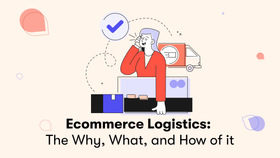The eCommerce Holiday Readiness Guide 2024 [Updated]
Everything you need to prepare for the holiday season in 2023 - site optimization, shipping, fulfillment, tools, marketing strategies, and email flows.
Updated November 6, 2024.
![The eCommerce Holiday Readiness Guide 2024 [Updated] main image](https://entail.mayple.com/en-assets/mayple/60b7581f89bea756cee92923_blackfridaysaleholidaysbanner_1dd9b5c88c26c47d9aa42e4eb2e8a050_2000-1699777158118.png)
The holiday season is the most important and busiest time of the year for eCommerce brands. In 2019 holiday retail sales hit $730B, and have been increasing at a rate of $29B and 4.1% year over year.
This year, it’s going to get even more competitive because online sales have grown at a pace that’s 10X faster than usual. The global pandemic had stuck so many millions on quarantine at home, with no other options but to start shopping online. In fact, eCommerce sales in the US have gone up 17% in 2020, and 10% in 2021.
So the competition is greater but so are the rewards for those brands that are willing to adapt and thrive.
The holiday season in 2024 is going to require even more preparation and strategy, so in this post, we break down everything you need to prepare to be ready for the biggest time of the year.
Let’s dive in.
Optimize your site
Let’s start with your site.
Make sure that your site is all ready to go for the influx of visitors.
Here are several things you should optimize:
1. Upgrade your site speed
First things first, make sure that your site works well and fast.
Your web and mobile users will be more likely to bounce if your site takes longer than 2 seconds to load, so use a tool like Google’s PageSpeed Insights to check your site speed and get some tips on improving it.
Some things you can do to improve your speed include:
- Compress all of your images and GIFs
- Remove unused code and plugins
- Change what loads first on mobile devices
Pro tip: A poor performance score on Google’s Core Web Vitals tool may hurt your SEO rankings and organic traffic. Make sure you solve any performance issues well in advance of the peak shopping season.
2. Check your site for mobile responsiveness
Already about 51% of all global traffic comes from a mobile device, so it’s super important that you optimize your site for users with smaller screens.
Because sadly, size matters A LOT for mobile users, so make sure that your site is responsive and all your elements are clearly visible and clickable on most (if not all) screen sizes.
You can use Screenfly to check how your site works on different screens and devices.
Mobile commerce is growing by leaps and bounds. Mobile sales in the US grew by 20% in 2020, to a whopping $71 billion, so brands have to focus on perfecting the mobile experience.
3. Optimize your checkout
Let’s face it, the checkout is one of the most crucial places on your eCommerce site. That’s where your users will either checkout or abandon your site forever.
Make sure that you eliminate any bottlenecks for your users and make sure that your checkout is the easiest possible experience for them.
You can use Usersnap to get customer feedback about your checkout process, or any other page on your site.
Improve selling, shipping, and fulfillment
Next, let’s talk about the operations department.
It’s super important to decrease your fulfillment times and ensure a smooth delivery experience for your customers.
Here are several ways to make your selling, shipping, and fulfillment run smoother.
4. Get your inventory ready
The worst thing that could happen is if you run out of products, right in the middle of the busy holiday season.
That’s every shop owner’s nightmare.
So order all of your products early and make sure that you are fully stocked on everything you need for this season.
Use a tool like Stitchlabs to get your inventory management under control. You can plug in all of your channels in there and quickly see what products need re-ordering.
5. Expand your sales channels
There is so much opportunity out there.
You can literally 10X your sales if you expand to new online marketplaces.
Here are some marketplaces you should think about expanding:
These are just a few, and there are a ton more out there. If you’re using Shopify as your eCommerce platform then you can look on their page of sales channels for more ideas.
You should also expand into new channels.
These would include:
A lot of these would require you to start planning months in advance, because each channel requires a lot of A/B testing, optimizing, and a thorough strategy. It might be easier to start with an expansion into a few marketplaces and see how sales ramp up over the course of a few months.
Now, remember, each new marketplace requires its own optimization. Each marketplace requires its own special offers, banners, and keyword optimization. It takes a lot of work to get everything right and meet customer expectations on that channel.
Pro tip: If you rely on organic traffic then you should definitely launch on Google Shopping. Becoming a Google Seller in good standing will get you more visibility on search results which will improve your organic search performance. Some say that good Google Seller Ratings also impact your Google Ads performance.
6. Expand to new markets & go global
Speaking of expansions, if your business is ready to go global or expand into new markets, now is the time to do that.
Make sure you start your research well in advance of the holiday season and start the expansion 6-12 months before the upcoming holiday season.
There are a ton of resources available online, explaining the pros and cons of each market.
Here’s a video that goes through each possible market on Amazon:
There is a ton of opportunity out there if you could make it work for your business.
So go out and do some research, and see what’s feasible in the short term.
7. Create a memorable unboxing experience
One of the first impressions that a customer makes about your product is the box and how easy it is to unpack your product.
Don’t skip this.
Brands like Apple, Dollar Shave Club, and Allbirds have all perfected the unboxing experience and have all surpassed the coveted $1B valuation.
Apple is already at more than $1.3T, and I still remember the first Macbook I have ever opened, back in 2006.
That’s how powerful your packaging materials are.
8. Offer free returns
There is nothing that boosts consumer trust like free returns.
Make sure that you have a very clear return policy, and if possible, offer free returns to your customers, no questions asked.
Already, 33% of online retailers offer free returns.
And studies show that negative return experiences tend to deter customers from shopping with the brand again.
So instead of trying to save money, offer free returns, and go above and beyond for your customer.
Not only will you get a 5-star review, but you will also amplify customers’ trust in your brand.
9. Offer free shipping
Did you know - 79% of US consumers say that they would be more likely to purchase a product if the shipping was free? That’s a staggering proportion of consumers.
Studies show that 21% of shoppers abandon their shopping carts when they are hit by the extra shipping charges at the end of checkout.
It’s the worst thing to display your shipping charges at the end.
And ideally, you should institute free shipping on some or all of your products.
If that’s possible for your business, it would get you a much-needed boost for the holiday season.
Here’s a great video by Anton Kraly that explains how to set up free shipping on expensive items and still make money.
Create strategic holiday campaigns & promotions
Ok, let’s dive deep into the marketing aspects of eCommerce holiday readiness.
10. Create your promotions early
Don’t be one of those slowpokes that wakes up at the beginning of December and starts scrambling to create their holiday promotion. You have to get all of your promotional strategies ironed out early.
The holiday season has extended dramatically in the last few years.
With more people shopping online, you have to come out with your promotions at the end of October/beginning of November, a few weeks before the BFCM weekend.
The best thing to do is to create a marketing plan with all of your promotions.
Here are the elements you need to prepare ahead of time:
- All the designs & collateral
- Banners in various sizes for social media and other digital channels
- Advertising creatives for Facebook and Google Ads
- Coupon codes & gift cards
- Promotion details
- A quick brief for your customer service team
You can use a tool like Abyssale to automatically resize your banners to all the right sizes.
Prepare your marketing collateral early and send customized and well-designed business holiday greetings to your customers.
This will make your brand stand out.
Speaking of greetings, let’s talk about your content marketing as a whole for the holiday period.
11. Create a holiday content calendar
Content marketing is a HUGE traffic source and as a way to nurture your leads and build trust in your brand. Holiday shoppers flock to gift guides online to find the best holiday gifts for their loved ones. You want to create the right content to attract and convert all of that traffic.
That’s why you need a holiday content calendar, to keep everything organized.
We have some great content calendar templates - here.
You can also use a tool like CoSchedule to organize your entire marketing calendar - blog posts, web copy, content promotions, and social media posts.
So you could keep all of your holiday marketing in one place. Makes it super easy to execute for you and your marketing team.
12. Plan out all of your email marketing campaigns
Once you have all of your calendar planned out it’s time to create your email marketing campaigns.
Email marketing is still the most powerful marketing channel, it generates $32 for every $1 spent, on average.
And it takes a lot of effort and thought to create an email marketing campaign.
Here are some high-level tips:
- Optimize your emails for mobile - make them look great for mobile, and make sure that your images aren’t too large.
- Add an instant buying option - like a “Buy Now” button that lets the user purchase the exact product that’s advertised with just a few clicks.
- Optimize your subject lines - make them short, personalize them, and add emojis to make them stand out.
- Send a campaign before/during/after the holidays - believe it or not, there are people shopping at all 3 of those times. The holiday season is getting longer and longer every year, so don’t forget to send a campaign early, one during Black Friday / Cyber Monday, and one after the holidays in January.
- Turn on your email flows - make sure that you have all of your flows set up, including your cart abandonment flows, welcome flows, and retargeting flows.
- CTA - your CTA should be clear, the button should stand out, and make your text short with lots of white space around to make the email easier to read.
- Social proof - include customer reviews, user-generated images, consumer ratings, and influencer videos in your emails to improve your customers' shopping experience.
- SMS - combine your email campaigns with an SMS strategy to engage with your customers when they are on the go, in real-time. Here’s a great example of an email we saw:
Here are the top things that are right about this email:
- The CTAs are clear and easy to spot
- Text is short and to the point
- The email presents a how-to guide
- There’s a referral code on the bottom with a $10 off coupon.
Referral programs are a super powerful way to get more sales, use a tool like SwellRewards to integrate referral codes into your emails.
13. Ramp up customer service
It’s super important that you keep your customer service team in the loop for all of your holiday campaigns (or sales team if it’s applicable). You don’t want them to get swamped with work and understaffed, and you also want them to know which discounts and holiday promotions you have going on, so they could provide the right info to the customers.
Consider hiring extra help during the holiday season, or at least have some of the team members work extra, during peak season.
Update your chatbot automation, if you have them, to make sure that your bot could answer as many customer questions as possible, to free up your human reps. This will also help set the correct customer expectations and keep customer satisfaction high.
You can use OctaneAI or Recart to set up a chatbot, smart responses, and marketing flows that bring your customers from discovery all the way to checkout.
14. Focus on nurturing customers and creating brand ambassadors
Everything comes back to the customer.
All your efforts should be focused on the customer.
Make sure that every single marketing banner and promotion is authentic to your brand and creates a great customer experience.
Build out your marketing strategy with your ideal customer persona in mind and make sure that your customer service team delivers on that overall goal and the promise you make.
There are a ton more powerful growth marketing strategies that you could use, so make a list of the ones that fit your business and continue optimizing.
Recap
Planning and executing a profitable holiday campaign takes coordination between 3 core teams/elements of the business:
- Operations / Wearhouse
- Marketing
- Customer Service
And once you have all of those teams on board and in sync, and your promotions on all your various digital and offline channels are on point, then you are in good shape.
It’s also about the long-term game.
If this is your first holiday season as a seller, you will learn a TON of stuff that you could improve on for next year.
And we have brands that are still drawing from past experience and optimizing in years 3-5 of the holiday shopping season.

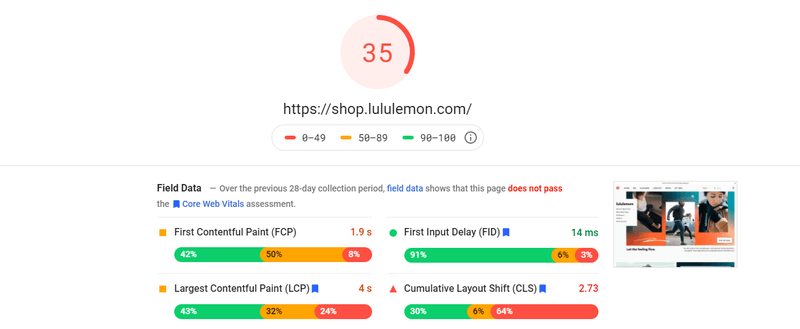
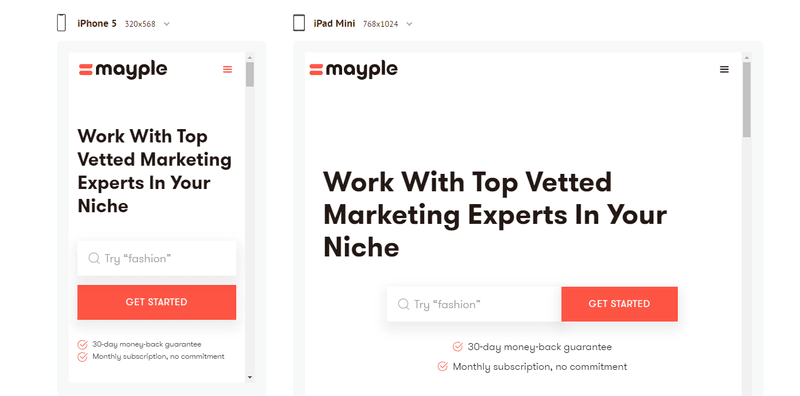
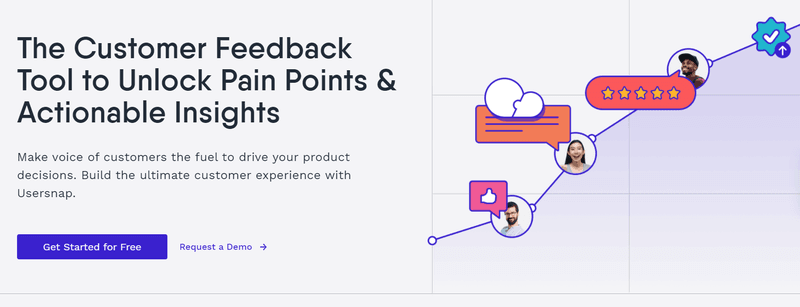
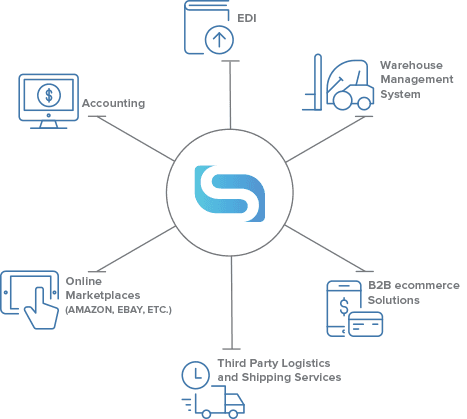
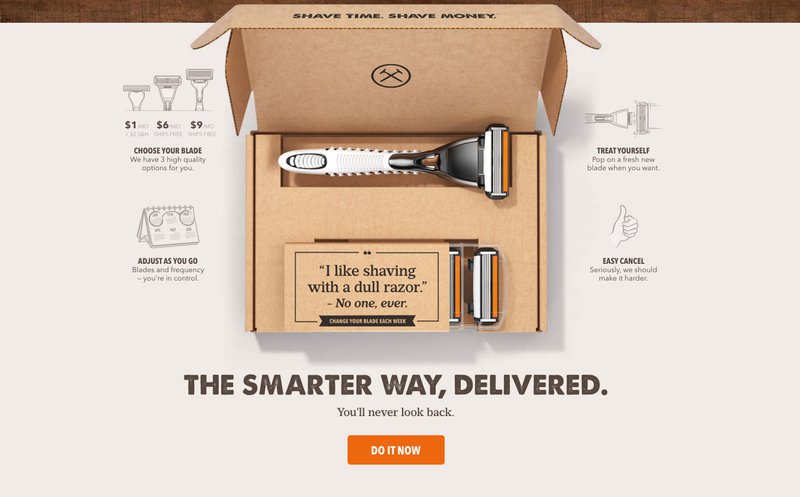
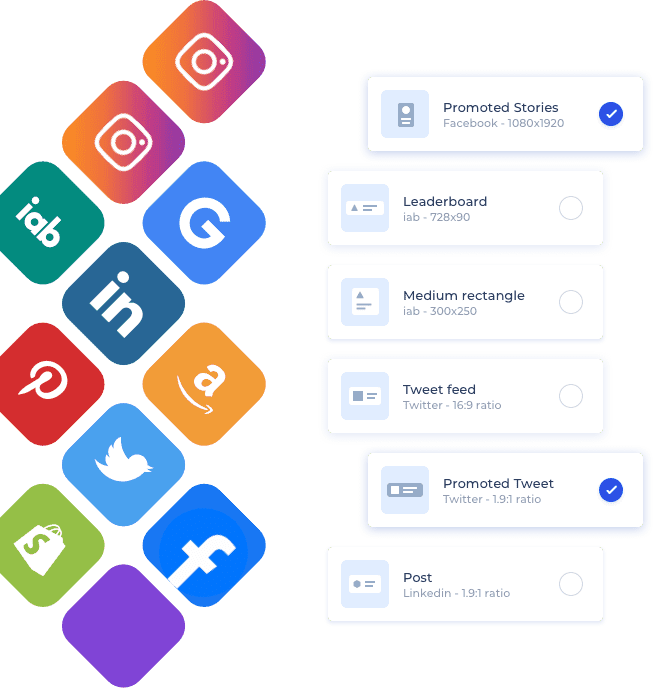
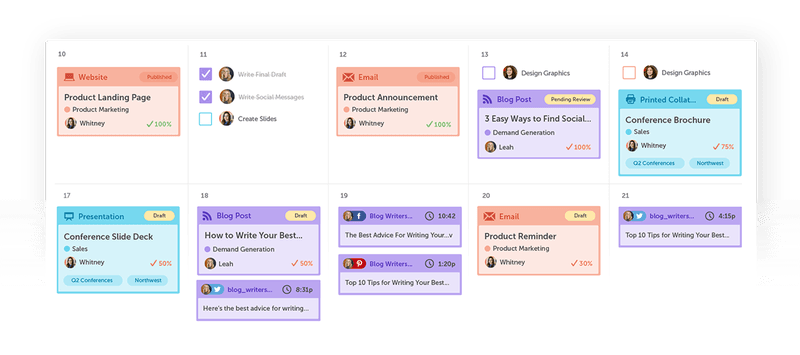

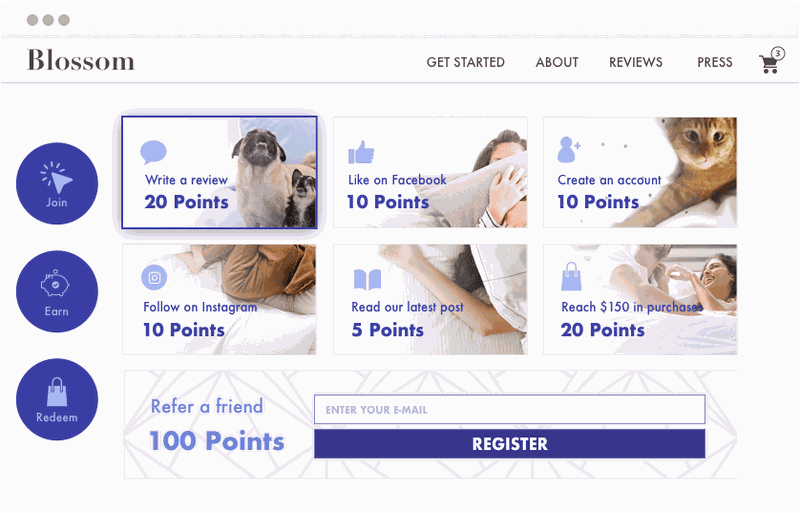
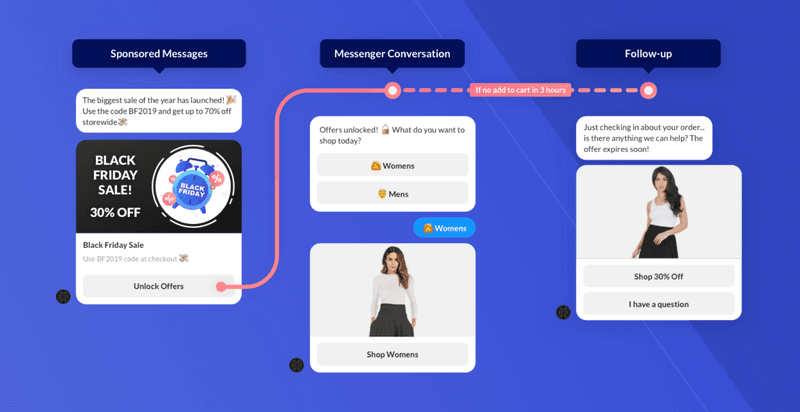



![[Interview] Jamie Turner on One-to-One Marketing, Data, and Hyper-Targeting](https://entail.mayple.com/en-assets/mayple/fit-in/280x280/60a0cd383502c074ee5083e4_1200308662230542Mayple1920x1080LA3_02_e5d1890c275fffc0736b1687ad9c7674_2000-1699777182228.jpg)
